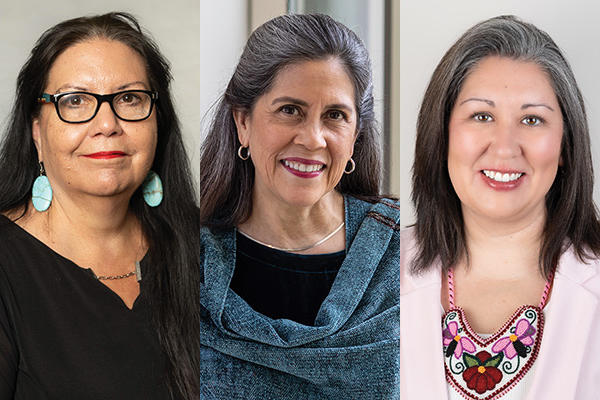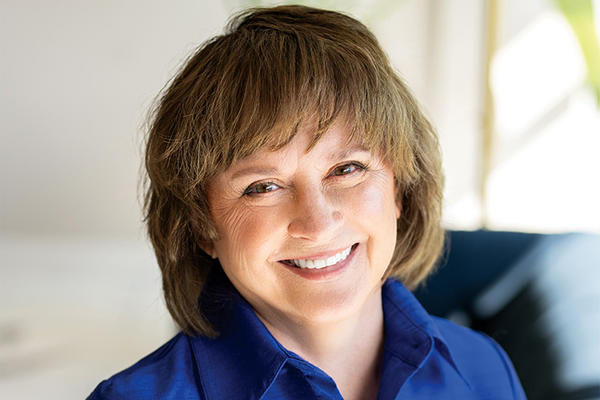Partnering for health
School supports VA as it seeks accreditation for transition to practice program
November 11, 2024

Carol Flaten, assistant dean for Pre-licensure Programs, and Star Thorson, RNTTP Residency Program coordinator.
In 2009, the Minneapolis Veterans Affairs (VA) Health Care System served as a pilot site for a transition to practice program for newly licensed nurses. After evaluation of the program showed effectiveness in terms of satisfaction and retention, the program was expanded to all VA sites nationally.
Now, the Minneapolis VA is seeking accreditation for this program from Commission on Collegiate Nursing Education and sought partners — including the University of Minnesota School of Nursing — for guidance.
The RN Transition to Practice program supports nurses with less than one year of experience in the transition from academia to a complex practice environment. The program consists of a 12-month curriculum that emphasizes veteran-centric content, and program activities build on the communication, clinical reasoning and technical skills acquired during nursing school experiences. The program consists of interactive classroom content, experiential learning activities, professional engagement with others and professional development planning.
“The evidence speaks to a transition program supporting newly licensed nurse in the first 12 months of their professional practice,” says Star Thorson, MSN, RNC-OB, NPD-BC, RNTTP Residency Program coordinator. “Newly licensed nurses are coming into a practice environment where the expectations are high and the learning curve is steep. The program helps support them during that time.”
Thorson says the Minneapolis VA is seeking accreditation to have the program thoroughly evaluated for program quality, effectiveness and continuous improvement practices. “Being able to go through the accreditation process and achieving accreditation speaks to the robustness of the program and the effectiveness of it to supply those newly licensed nurses with the knowledge and resources they need to be successful,” she says.
As part of the accreditation process, an advisory council was formed to provide feedback and support. The University of Minnesota School of Nursing was a logical partner.
“In addition to the history of research and academic affiliations, we have a collaboratory partnership that is unique,” says Thorson. “That naturally fit into why we would want to partner.”
Assistant Dean for Pre-licensure Programs Carol Flaten, DNP, RN, PHN, now serves on the advisory council. “We were a logical academic partner to be invited because we go through a similar accreditation process every 10 years, and it feels like a natural fit to collaborate with the VA to support a program that will benefit our graduates as well,” says Flaten.
Of the 37 newly licensed nurses the Minneapolis VA hired last year, 14% were from the University of Minnesota.
The accreditation application was submitted earlier this year, with a site visit next year and notification of accreditation in 2026.
In the meantime, the advisory council meets quarterly. “We learn a lot from hearing what they are noticing in our new grads. It’s really full circle and two-way learning,” says Flaten.
Thorson agrees. “Combining our areas of expertise and putting them together to move both missions forward is important,” she says.
Partnering for health is a recurring feature that highlights a school partnership working to advance health care to improve the health and wellbeing of all.


